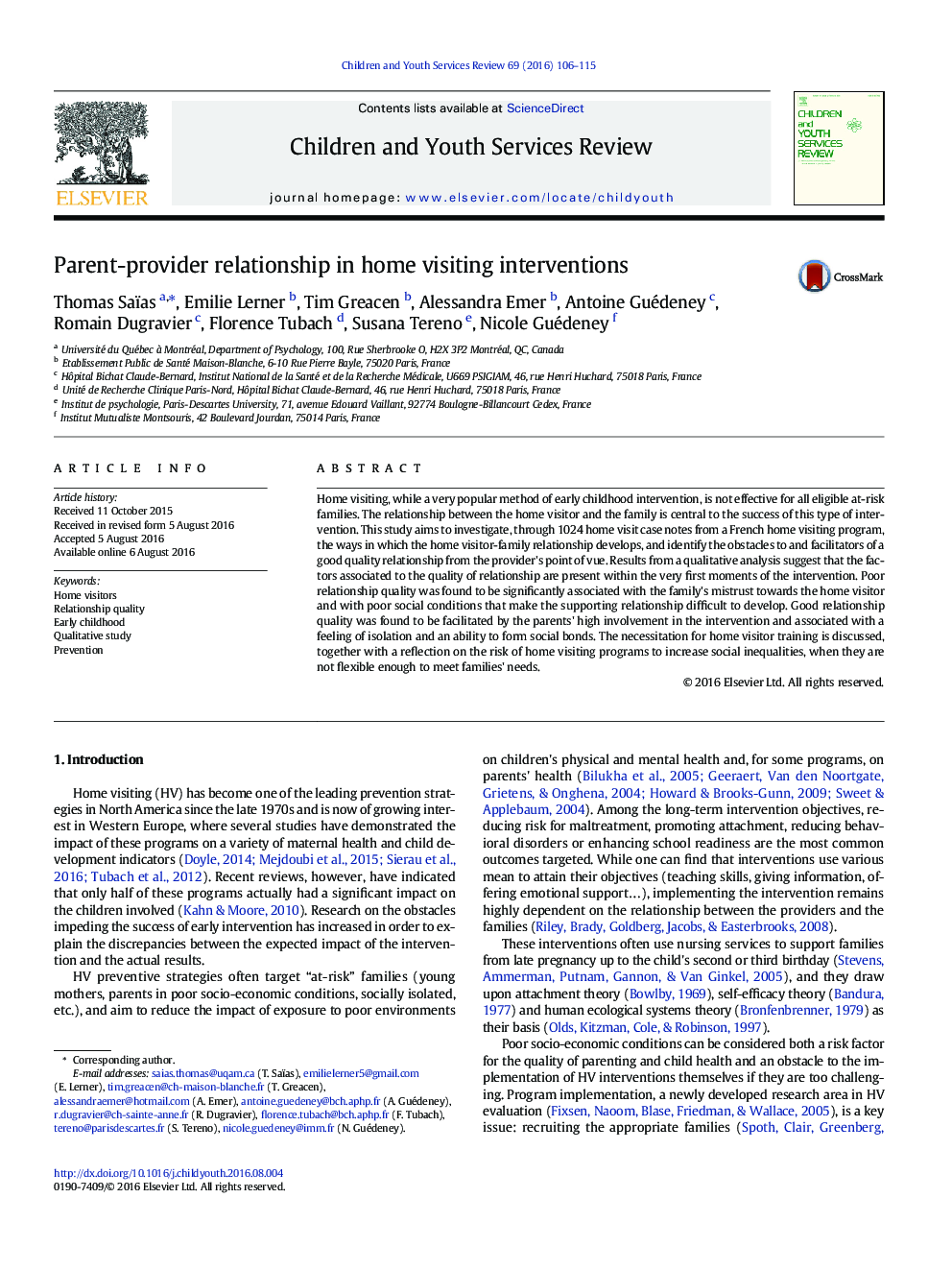| Article ID | Journal | Published Year | Pages | File Type |
|---|---|---|---|---|
| 6833643 | Children and Youth Services Review | 2016 | 10 Pages |
Abstract
Home visiting, while a very popular method of early childhood intervention, is not effective for all eligible at-risk families. The relationship between the home visitor and the family is central to the success of this type of intervention. This study aims to investigate, through 1024 home visit case notes from a French home visiting program, the ways in which the home visitor-family relationship develops, and identify the obstacles to and facilitators of a good quality relationship from the provider's point of vue. Results from a qualitative analysis suggest that the factors associated to the quality of relationship are present within the very first moments of the intervention. Poor relationship quality was found to be significantly associated with the family's mistrust towards the home visitor and with poor social conditions that make the supporting relationship difficult to develop. Good relationship quality was found to be facilitated by the parents' high involvement in the intervention and associated with a feeling of isolation and an ability to form social bonds. The necessitation for home visitor training is discussed, together with a reflection on the risk of home visiting programs to increase social inequalities, when they are not flexible enough to meet families' needs.
Related Topics
Health Sciences
Medicine and Dentistry
Perinatology, Pediatrics and Child Health
Authors
Thomas Saïas, Emilie Lerner, Tim Greacen, Alessandra Emer, Antoine Guédeney, Romain Dugravier, Florence Tubach, Susana Tereno, Nicole Guédeney,
